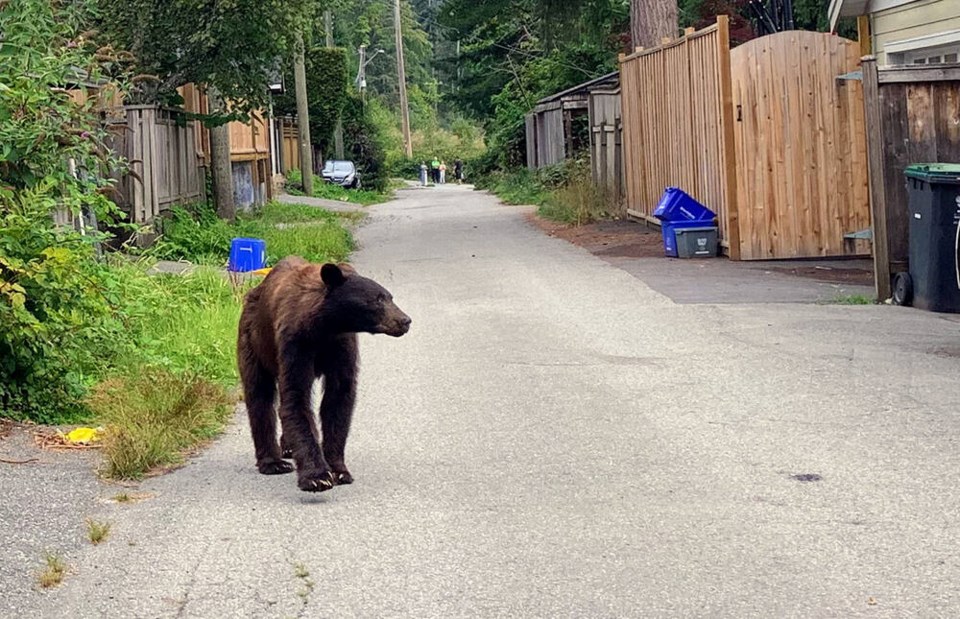B.C. Conservation Officer Service members have put down a severely emaciated and unwell black bear that had been spotted regularly in North Vancouver neighbourhoods.
The North Shore Black Bear Society had already voiced concerns about rail-thin bear, which they had dubbed “Skinny Brown Bear.” They had received numerous reports of the bear showing up between Dollarton and Lynn Creek, oftentimes in the busy commercial areas along Main Street.
“We want to give a shout out to our amazing community for letting us know what was going on with him. In the last 24 hours of his life, he’d really slowed down, and he had stopped moving around very much, which was a change,” said Holly Reisner co-executive director with the society.
When they received a report of the bear sleeping next to a house on Friday, Reisner said they made the decision to request a B.C. Conservation Officer Service member to come do an assessment.
The officer first tranquilized the bear, allowing for a closer inspection, which found the bear had severely worn and missing teeth, indicating it was likely a senior.
“Once he saw the bear, he realized that his condition was so much worse than even it showed in the photos. It was just emaciated,” Reisner said.
Because of the bear’s age, rehabilitation wouldn’t have been an option, Reisner said, and there was no way it would have survived relocation.
“He made the decision the only humane thing to do was to euthanize the bear. That was a sad outcome,” she said.
Both the conservation officer and a wildlife vet who looked at photos of the bear suggested it may have been suffering from a partial blockage in its digestive tract, making it impossible for it to feed. If that was the case, a stomach full of garbage would almost certainly be the culprit, Reisner said.
“They’re so driven by their sense of smell. If they smell the wrappings from your roast chicken, and it smells like chicken, they’re going to eat it, even though it’s plastic,” she said, stressing the need to clean food packaging before putting it out for collection. “They ingest an incredible amount of plastic. I’ve seen bear scat which is just 100 per cent plastic bags.”
Two of the other bears killed this year were shot by conservation officers in West Vancouver after the bears pushed their ways into homes in the British Properties.
One bear was found badly wounded in a North Vancouver yard, likely from being struck by a driver on the roads in Lynn Valley, before conservation officers came to euthanize it, Reisner said.
As the seasons change, black bears will begin foraging for up to 20 hours per day to pack on pounds before winter. The North Shore Black Bear Society has been urging residents to keep their properties free of attractants like tree fruit, bird feeders and garbage that will likely draw bears into conflict.




